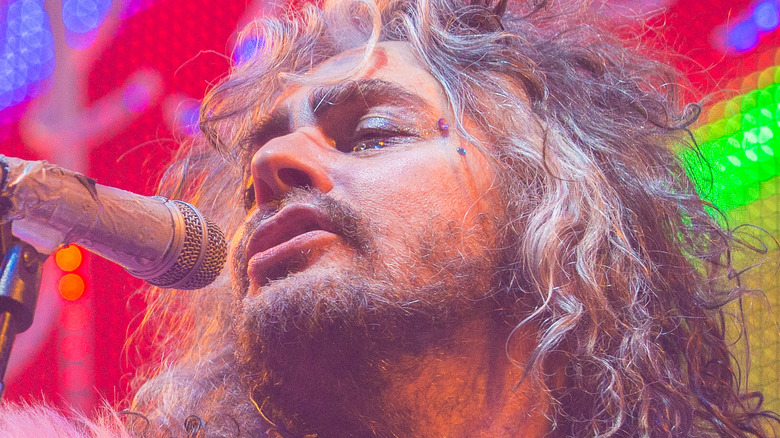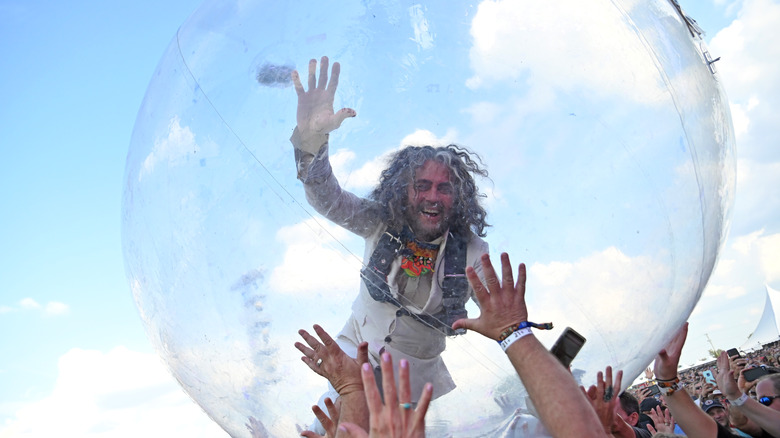How The Flaming Lips' Wayne Coyne Was Nearly Killed In High School
In 1993, the popular music scene was obsessed with the intense, growing-out-bangs-obscured gaze of grunge, with its crunching guitars and lyrics about the underbelly of society. So when The Flaming Lips' "She Don't Use Jelly" came along with goofy, absurdist lyrics like "I know a girl who thinks of ghosts/She'll make you breakfast, she'll make you toast/She don't use jelly, or any of these/She uses Vaseline," (lyrics via Genius) music lovers laughed, breathed a sigh of relief, and The Flaming Lips became an alt-household name.
Not that all of their songs are like that one; in a career that so far spans 16 studio records and 35 years, The Lips' repertoire ranges from profound, tear-jerking truth to high-concept camp that's somehow still both cerebral and accessible. Their live shows are pretty far from rote as well, employing confetti, elaborate costumes, and, in these COVID times, space bubbles (via Vice). But The Flaming Lips aren't just theatrics; their body of work connects with people on an emotional level.
The song "Mother Please Don't Be Sad," from their most recent record, 2020's "American Head," directly pulled its inspiration from a harrowing experience that the band's lead singer, Wayne Coyne, went through at just 16 years old.
"I think it changed me"
Coyne told Loud and Quiet that he had started working at the national seafood franchise Long John Silver's in Oklahoma City a couple of nights a week in order to be able to pay his half of rent on an apartment he had with his girlfriend, and he went to high school during the day. "I loved this job," he said. "I ended up working there something like 11 years. I started there in 1977, that's when I'm 16 — it sounds ancient now — and worked until almost 1990."
He said that there had been a lot of armed robberies in Oklahoma City, particularly at restaurants, some of which had resulted in fatalities. So when some armed robbers stormed the place that Coyne worked five minutes before closing time, he was terrified of being the next violent crime statistic.
"You're just working one second and the next second you're laying on the ground and some guy puts a bullet in your head," he told Rolling Stone. "Obviously they robbed us and left and didn't kill me. We all cried. We couldn't stop crying and laughing and jumping up and down. The idea of we are alive and isn't it a f***ing great thing? I think it changed me."
Coyne elaborated that being that close to dying really made him see that life is worth celebrating, and he brought that joy to his music and performing. And the world is a much better, weirder place for it.

